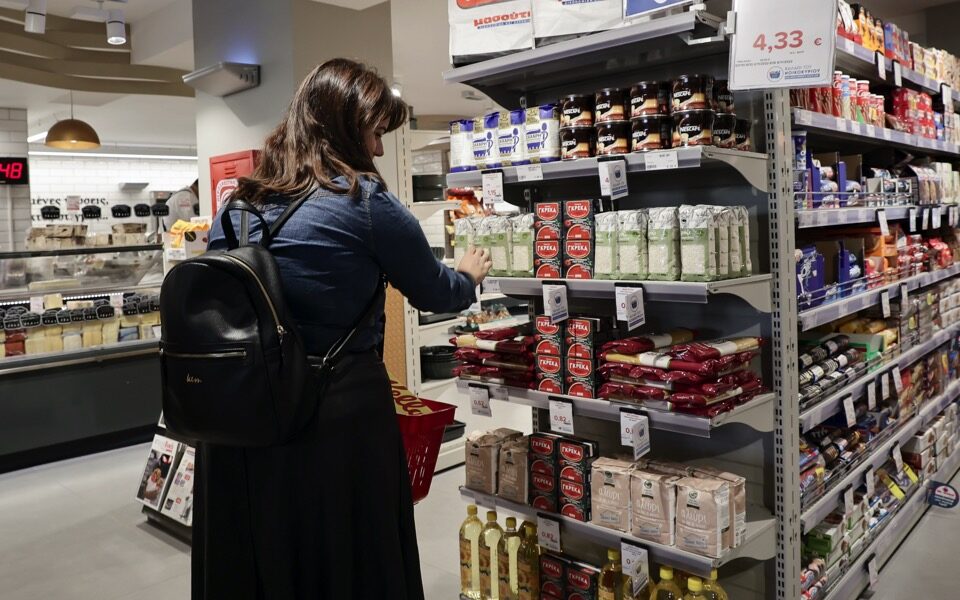‘Wild west’ pricing

Inflation had already begun to rear its head in the autumn of 2021, several months before the Russian invasion of Ukraine, and was exacerbated by the war and the tight monetary policy of the European Central Bank, which, instead of boosting supply, was “attacking” imaginary enemies: excess demand that simply did not exist.
In a normal country, the government would try to limit imported inflationary pressures and contain their diffusion through the channels of the economy to prevent a generalized price spike. A timely response would be even more imperative in a “non-normal” economy such as Greece’s, where competition is desperately weak, cartel practices are commonplace, and the slightest imported pressure is immediately exploited as an excuse for the onset of domestic profiteering. The government became complacent, believing in “fixed-price household shopping baskets.” Inspections were not carried out while the competent agencies lack staff and funding.
Things have come to a head in a country that lags behind in wages and at the same time has some of the highest prices in Europe. The measures announced last Wednesday by Development Minister Kostas Skrekas are in the right direction. Indeed, some of them, which aim to restore transparency in the pricing of consumer goods, have been discussed for years, but had been shelved – thanks to the supreme forces of profiteering. In a normal market, such measures would reduce prices within a reasonable period of one or two months. But in a market that has a tenuous relationship with competition, this is far from certain.
Look at what happened with baby formula: The monopoly was removed from pharmacies and it was made available at supermarkets to make it cheaper. Yet it ended up being three times more expensive than in Sweden. Because in a market based on nepotism and in the absence of healthy competition, a large part of import, processing and wholesale traders have been “spoiled” with high profit rates, the likes of which are not found in any other European market, large or small – or smaller than the Greek market – for example, Cyprus. Greece was and remains an El Dorado for multinationals because it is an El Dorado for profiteering in general – domestic and foreign.
Things have come to a head in a country that lags behind in wages and at the same time has some of the highest prices in Europe
These are not minor weaknesses of our economic model, but its constituent elements:
A: Its first characteristic is the very cheap price of labor. (Isn’t that the main reason why businesses can’t find workers and, more importantly, educated workers?) So cheap that it ends up acting as a disincentive to worthwhile investment in productive modernization. (Is the great and almost permanent underinvestment in production in the Greek economy a coincidence?) Second, it’s the easy big profits without long-term commitment and risk. Baby formula, which in a country with wages at one third of the Swedish equivalent costs three times the price found in Sweden, shows – in an extreme way – that this is the rule, not the exception.
B: If, again, we wanted to change this model for a new one, with increased inclusion of internationally traded goods and services and, in particular, high-tech products in GDP, this would require a shift of profitability and capital toward businesses producing those modern goods and services. What should we do? Perhaps, as is the case in other countries of advanced capitalism, the state should provide a different direction with designed incentives. But no direction stands a chance in an angry archipelago of generalized profiteering.
In such a model, piecemeal measures, however right, are easily “digested” by the market. And no political party seems seriously willing to think about this and try to change it.





